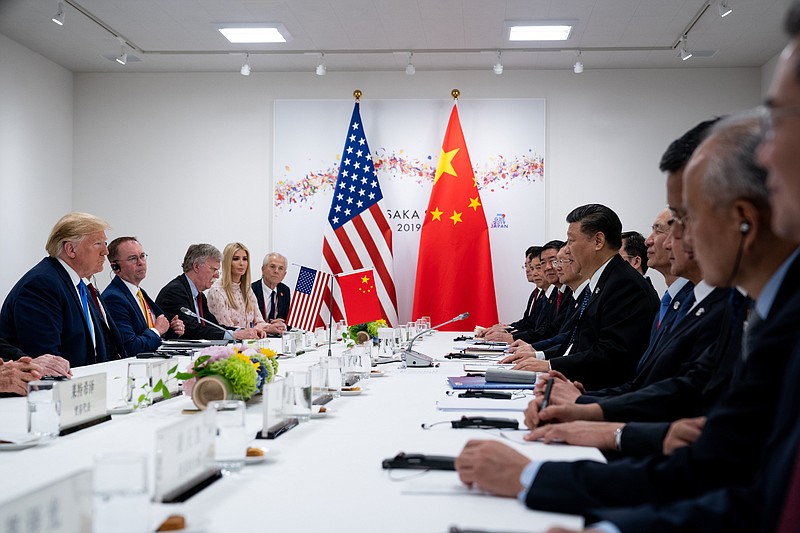ASPEN, Colo. - Where is the United States heading in its confrontation with China, which moved this week from a trade dispute to a currency battle - with more dangerous tests in Hong Kong and Taiwan looming ominously in the background?
Does the U.S. have a strategy in this cascading competition? Do America's military and diplomatic tools match the scope and subtlety of the challenges ahead? Is America's growing anxiety about Beijing creating a policy panic that overstates the Chinese threat and understates U.S. strength?
This "Battle for Primacy" with China was the topic of this week's annual meeting of the Aspen Strategy Group, a group of former secretaries of state, national security advisers and other senior former and current officials, supplemented by some journalists and think tank analysts, that has been gathering here since 1984.
"The consensus of our meeting was that this is by far the greatest national-security challenge the U.S. faces for the next few decades," said Nicholas Burns, a Harvard professor and former undersecretary of state who serves as the group's director. The forum agreed that "the foundation of our policy toward China has to be the internal strength of the United States," he said.
Over the three days of discussion, I heard broad support for other specific themes: China has become a potent rival in military power, technology and economic clout, and President Trump was right to take a tougher line on Chinese trade practices than had his predecessors. But Trump's policy has been a changeable collection of tactics more than a systematic plan for dealing with China - it's "an attitude more than a strategy," as one member of the group put it.
Trump's tariffs have produced an escalating tit-for-tat pattern that this week spread to currency, as China let the renminbi fall sharply and the U.S. responded by branding Beijing as a "currency manipulator."
What concerned the group was that Trump's economic jousting is taking place against a backdrop of potentially explosive security challenges - the growing citizen protests in Hong Kong and a January election in a Taiwan that Beijing sees as a rebellious province. These two political battles carry a risk of Chinese military intervention for which the U.S. isn't well prepared.
Philip Zelikow, a former State Department official who teaches at the University of Virginia, warned that he sees "a one-in-three chance of major crisis over Taiwan in the next year or so."
U.S. military options would be risky in a Taiwan crisis. In more than a dozen war games over the past decade, news reports have said the imaginary U.S. side has lost. "The force we have isn't going to win," cautioned Chris Brose, former staff director of the Senate Armed Services Committee.
The group agreed that America must prepare for a long, difficult period of competition with a China that can no longer be regarded as a benign partner.
But as the discussion progressed, group members increasingly stressed that it was important for the U.S. not to overreact, in Taiwan or elsewhere, and to remember America's abiding strengths - it if can solve its current political problems.
The Aspen conversation wasn't a call to arms against China, but rather a call to prudent national security policy. China is gaining weight in the seesaw of power, said Harvard professor Graham Allison, but America retains the balance if it keeps faith with allies such as Japan and Europe and brings them to the competition.
It's a long game, one that requires the most precious and scarce resources in today's America - patience, unity and resolve.
The Washington Post Writers Group
